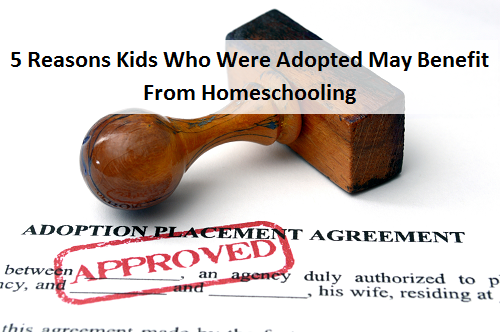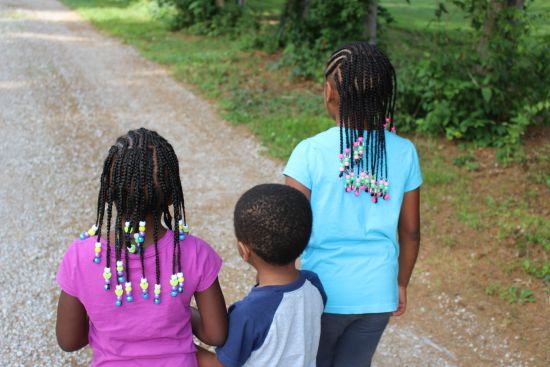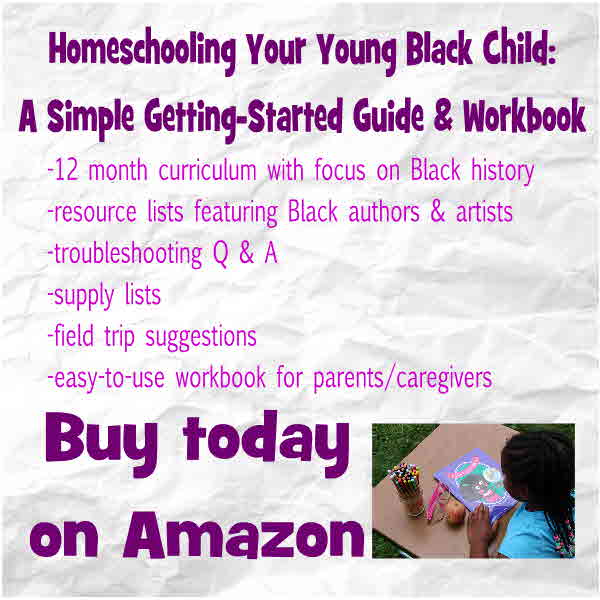I used to be one of the moms who claimed I would never homeschool. I only knew a few homeschooled kids growing up and they were socially awkward, never fitting in with the rest of us. I didn’t want my children to feel excluded, nor did I wish for them to be labeled or stereotyped because of being homeschooled.
However, two years ago, as my daughter was in her second year of private preschool, I became increasingly concerned with the lack of Black history being taught. Once she entered half-day kindergarten at a public school, I figured that there would be more of an emphasis on Black history. There was, but it was relegated to February (Black History Month) and Dr. King’s birthday. What about the rest of the year?
As a mom-by-adoption to three Black children, I wanted my kids to be racially confident and competent. I wanted them to know more about their history beyond Dr. King, Rosa Parks, and slavery. This is how I “fell” into homeschooling. For year, my oldest attended part-time kindergarten and my middle daughter attended preschool six hours a week. Every afternoon, we would sit in our designated homeschooling room, while their baby brother napped, and we would read, do workbooks, listen to music, play educational games, and do art projects. On the days I was too tired or too busy, my kids would beg me to sit with them and “do homeschooling.”
Children who join their families by adoption can benefit from homeschooling in many ways, and here are five of them:
1: Children can learn more about their racial culture and history beyond what most public and private schools choose to offer. Instead of a “bare bones” understanding, my oldest two children already know more about Black history than my college students did! (I taught college writing courses for eight years at a local university.) This empowers and educates children, helping them become confident in who they are and being proud of where they came from.
2: Children aren’t forced or pushed to get through material they truly do not yet understand. Many kids who were adopted have gaps in their learning due to where they lived before they were placed in the adoptive home. There can also be language barriers, cognitive delays, and learning disabilities. Instead of throwing a child who is struggling into a “herd” which is prodded along as a group, the child can receive individual attention, only moving forward when the material is truly understood.
3: Children are encouraged to express their emotions and be heard. Kids-by-adoption have sometimes come from a traumatic past due to abuse or neglect. Their feelings, in the past, may not have mattered or been listened to, accepted, or responded to. Therefore, the kids have been conditioned to be quiet (struggling in silence) or to behave erratically in order to try to be heard. Homeschooling can be a time of teaching the child how to appropriately express emotions and ask for help, as well as help parents really tune in to their children’s needs.
4: Children are able to bond with their siblings and homeschooling parent. Some children who were adopted may have a hard time bonding and attaching due to a traumatic past. Attachment to primary caregivers may impact the child’s future relationships; therefore, it is critical that children who struggle with attachment get the help that they need. Cooperative activities with siblings, sitting on a parent’s lap for a story, making eye contact with siblings and parents, etc. can help with the bonding process.
5: Children learn to be themselves. When a child who is adopted first comes into a family, often times there is a honeymoon period in which the child is on “good behavior” and the parents believe that everything will be just fine. However, once this period ends, a child’s “true colors” begin to show, leaving some parents frustrated and overwhelmed. Homeschooling gives parents and kids the time and safe place to work through these difficult times, hopefully until the child feels comfortable to be themselves and have his or her personality, talents, and quirks celebrated and encouraged.
Rachel Garlinghouse is the author of four books including the newly released Homeschooling Your Young Black Child: A Getting-Started Guide and Workbook. Her adoption education and experiences have been featured on NPR, MSNBC, Huffington Post, abcnews.com, Yahoo, Huffington Post Live, Scary Mommy, Babble, and many other places. Rachel and her family live in St. Louis. Learn more about adoption, homeschooling, and her family’s adventures at White Sugar, Brown Sugar.




